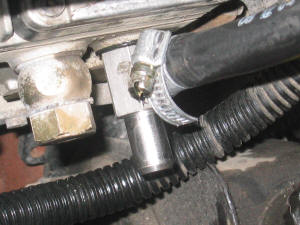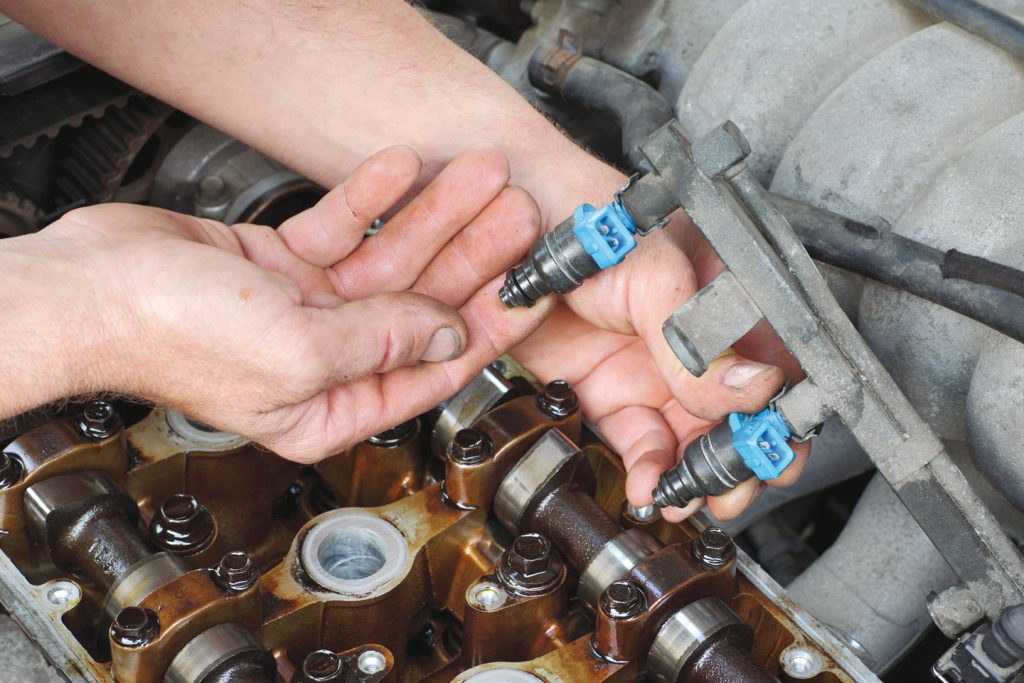

Fueling performance: when to upgrade your car’s fuel injectors is a crucial question for many car owners. A poorly functioning fuel injection system can significantly impact your vehicle’s performance, fuel efficiency, and overall driving experience. This article will explore various factors to consider when deciding whether to upgrade your car’s fuel injectors. We’ll delve into the signs that indicate a need for replacement, the costs involved, and how fuel injector upgrades affect performance. Finally, we’ll provide actionable steps to help you decide if upgrading your car’s fuel injectors is the right move for your needs.
Understanding Fuel Injectors
What are Fuel Injectors?
Fuel injectors are crucial components of your car’s fuel system. They precisely control the amount of fuel that mixes with air before entering the engine cylinders. A well-functioning fuel injector ensures a consistent and optimized fuel-air mixture, leading to better performance and reduced emissions. Poor injector performance directly impacts your engine’s power and fuel economy, ultimately affecting the driving experience.
The Critical Role of Fuel Injectors
Imagine your engine as a hungry beast. The fuel injector is the chef, carefully measuring and delivering precisely the right amount of fuel to keep the engine running smoothly and efficiently. Any malfunction in this precise delivery system leads to problems. This is why maintaining healthy fuel injectors is a key factor in maintaining optimal performance and fuel efficiency of your car. The key here is proper maintenance and knowing when to upgrade.
Identifying the Need for Replacement
Recognizing the Signs
Several indicators can signal the need for fuel injector replacement. Reduced engine performance, including rough idling or difficulty accelerating, can point to worn-out injectors. Noticeable dips in fuel efficiency or a lack of responsive acceleration are common problems associated with failing fuel injectors. These symptoms, combined with other issues in the car, are warning signs that call for immediate attention to avoid serious problems.
Diagnostic Tools and Techniques
The car’s onboard diagnostics (OBD) system can reveal issues with the fuel delivery system. A professional mechanic can use these diagnostic tools, in conjunction with visual checks of the injectors and the fuel pressure regulators, to pinpoint the source of the problem. Comprehensive diagnostic procedures are essential in such cases, as fuel injectors can interact with various systems in the engine.
The Cost Factor and Budget
Fuel Injector Replacement Costs
The price for fuel injector replacement varies significantly depending on the car model, make, and type of fuel injectors. For older models, the cost can be relatively lower, while newer models, especially those using advanced technologies, may command higher replacement costs. It is important to get multiple quotes from reliable mechanics to compare prices and ensure you are getting a fair deal. Don’t hesitate to contact several service providers to compare and ensure you are getting the best service for the lowest price possible.
Budgeting for Upgrades
Consider not just the immediate cost of the new injectors but also the potential labor costs for installation and any necessary ancillary repairs or maintenance needed at the same time. Plan ahead and factor in these costs to avoid unpleasant surprises down the road. A thorough inspection will also help you budget well in the long run by avoiding sudden major repair costs. Budgeting ahead is always beneficial in avoiding unexpected costs.
Performance Gains and Considerations
Enhanced Performance with Upgrades
Fuel injector upgrades can yield substantial improvements in engine performance. Modern fuel injectors offer precision control, resulting in a smoother power delivery, and improved fuel economy. Upgrades can improve the efficiency of the fuel-air mixture in the combustion process. This improved efficiency is a key component of a healthy engine. However, it is important to carefully research the specific type of upgrade that is appropriate for your car, in order to maintain the safety and reliability of the system.
Factors to Consider
Several factors influence the decision to upgrade fuel injectors. Vehicle age, mileage, and current performance all play a role. A car owner might not need an expensive upgrade if there are other factors affecting the car’s performance. Maintenance, other upgrades such as replacing the spark plugs, or other issues within the car may also be a factor. It’s crucial to evaluate all aspects of your car’s condition.
Timing the Upgrade
When is the Right Time?
The decision of when to upgrade your car’s fuel injectors is a complex one. Frequent monitoring of fuel consumption patterns, combined with driving experience, and feedback from the car, can be indicators of when replacement is needed. It’s recommended to address any issues promptly, rather than waiting until more serious problems arise and repair costs become exorbitant.
Seeking Expert Advice
Consulting with a qualified mechanic or a professional involved in auto repairs is recommended. They can conduct a thorough assessment of your car’s condition and fuel system and provide tailored recommendations. This helps in determining whether an upgrade is necessary and the best timing for it. Professionals can help with finding the best solution to avoid unnecessary costs.
Long-Term Maintenance and Prevention
Regular Maintenance for Fuel Injectors
Maintaining your fuel injectors involves regular upkeep. Proper fuel maintenance, regular cleaning of the system, and adherence to the manufacturer’s recommended maintenance schedule significantly contribute to preventing problems with fuel injectors. This will help reduce the chance of a need for injector replacement in the future.
Proactive Measures to Prevent Issues
Fuel injector problems can be mitigated with proactive measures. Using high-quality fuel and keeping your vehicle well-maintained are critical. Keeping your car running well will keep your fuel system running efficiently, thereby reducing the chance of major issues and preventing the need for immediate repairs.
Frequently Asked Questions
Q: What are the warning signs that my fuel injectors need replacing?
A: Several signs can indicate your fuel injectors require attention. These include rough idling, erratic acceleration, a noticeable decrease in fuel economy, and sometimes a sputtering or hesitation when accelerating. Additionally, you might notice unusual noises such as hissing or clicking sounds around the engine compartment. If you experience these symptoms, it’s best to schedule a professional inspection to determine the root cause and necessary actions. A qualified mechanic can diagnose potential problems and recommend the best course of action, ultimately saving you time and money.
In conclusion, upgrading your car’s fuel injectors can significantly boost performance, but the optimal timing depends on various factors. Consider your car’s age, mileage, current performance, and budget. If you’re unsure, consult with a qualified mechanic or do your research before jumping into an expensive upgrade. Professional advice and informed decisions are crucial for maximizing your investment and maintaining optimal vehicle performance. Ready to unlock your car’s potential? Contact a trusted mechanic for a personalized assessment.